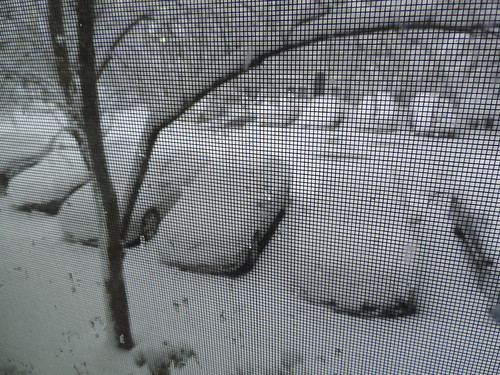
It's just never gonna come easy, is it.
Well, after lots of whining and anxiety, we got to our flight on time and got to Florida with no problems. There was a rent-a-car snafu but it got settled easily enough and we were on the road by 12:30 PM. Our first stop was right around the corner, on a side street on the way to the highway. I figured we could get a Brown Anole or something around the bushes to get ourselves started. Much to our surprise, our first herp was a lifer; a Northern Curlytail.
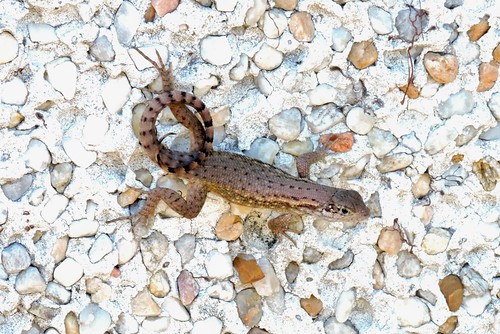
Invasive, yes, but quite exciting all the same. Just how do they get their common name?
We got on the road and planned our next stop. It was going to be at a park near Fort Lauderdale where the son we never wanted, Matt, had told us to go. Our target was the Burrowing Owl. We got there, parked and looked around, deciding to walk across a field to explore along the water's edge. I saw a large lizard bolt into the brush through a fence. I snapped a distant shot and saw that it was an iguana. We went up to the fence to try for a better shot and there we saw lifer #2 and invasive #2... a Brown Basilisk.
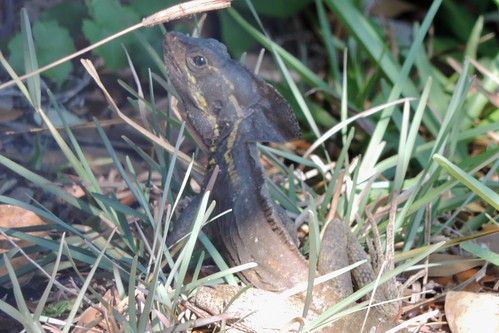
Such a beautiful, if dumb-looking animal!
Keeping with the invasive theme, our first Brown Anole.
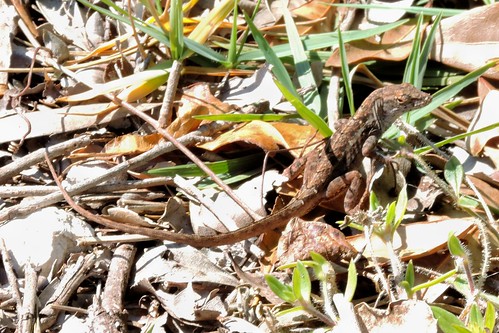
As we walked along the paved path, we saw many iguanas running for cover. In fact, looking ahead, we could see heads popping up, including a massive specimen.
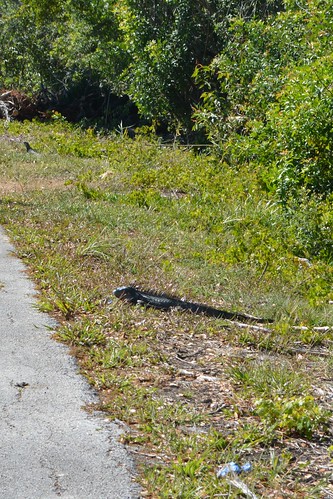
So now we can present herp #4, invasive #4... the Green Iguana.
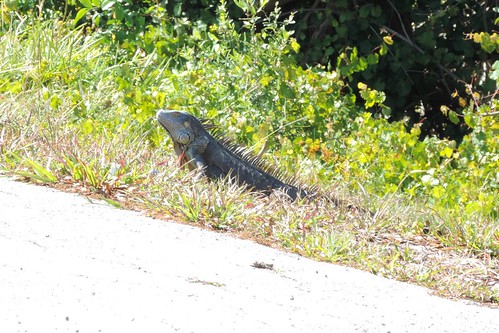
This brute was huge and he wasn't budging. These are the first wild iguanas we had seen since our trip to Puerto Rico in 2006 or so.
We walked up some other paths, trying to find the Burrowing Owls. A guy who was fishing there told us that the owl nests are roped off, so we headed for a distant roped area. There was a road-worker there on a smoke break who was watching something. I asked about the owls. He pointed one out...
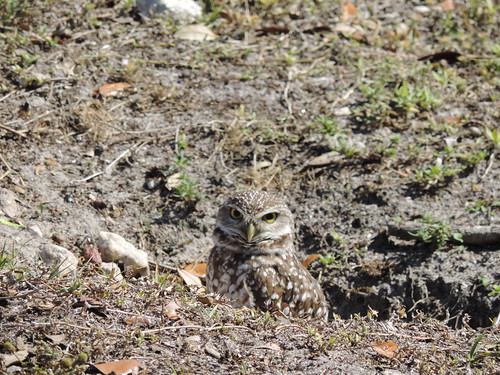
Duh... right there in front of us, #22 on the year, Lifer #168. These guys are so damn cute.
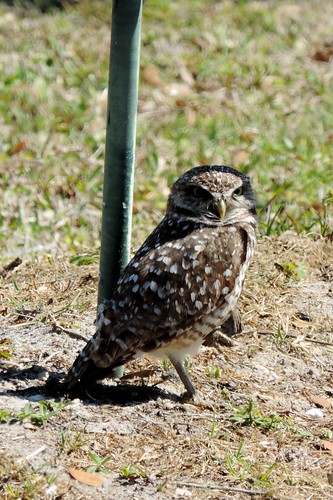
We checked out a few other nesting areas before returning to the water's edge.
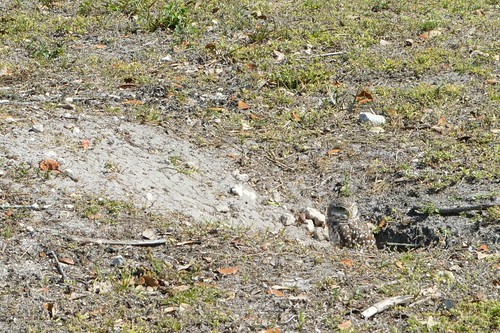
A Green in a tree'n.
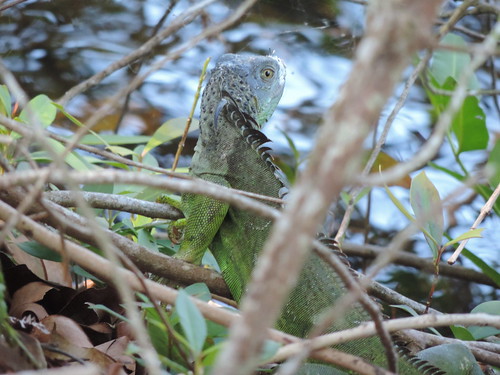
A Brown on the groun'.
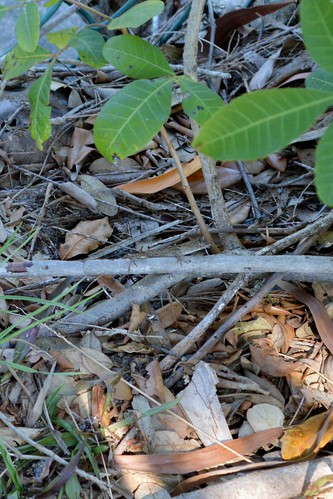
Reptiles aren't the only invasives in the area. We'd been watching flocks of parrots flitting around. I finally got the camera on one outside of it's wire-top "nest"... Lifer #169, the Quaker Parrot (aka Monk Parakeet).
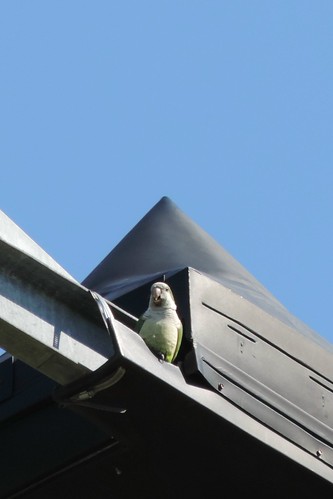
I'm a little hesitant to add them to the bird count but they are firmly established, so they're here to stay.
Andrea's fascination for animal tracks led to this photo of iguana tracks.
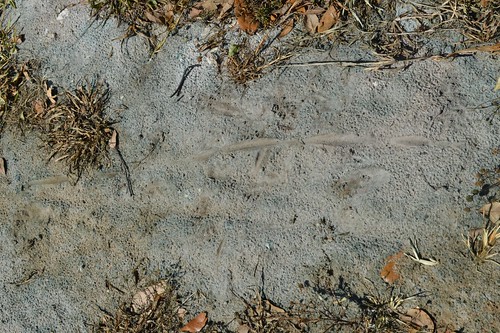
Three more were lined up on our way back.
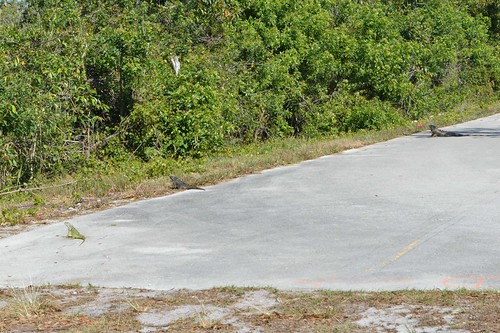
That front guy was so green!
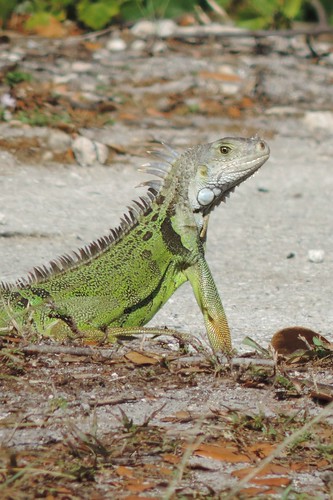
It should come as no surprise that our first snake and fifth overall herp species was an invasive. I guess introduced is a better way of describing the Brahminy Blind Snake... they're not really a threat or competition to anything here.
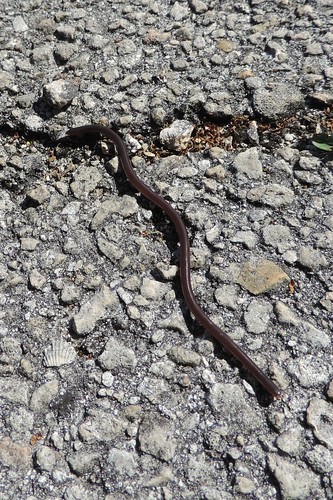
They're tremendously weird little fuckers, though!
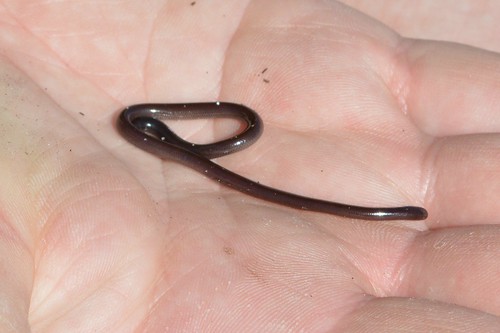
We'd stayed a bit longer than planned at the park (who knew it would be so much fun?) so we got caught in a little bit of Friday rush hour traffic going past Miami, but we got to our hotel in Florida City at a reasonable hour. We found a new friend for Andrea under a rock on the grounds, a mellow Brown Anole.
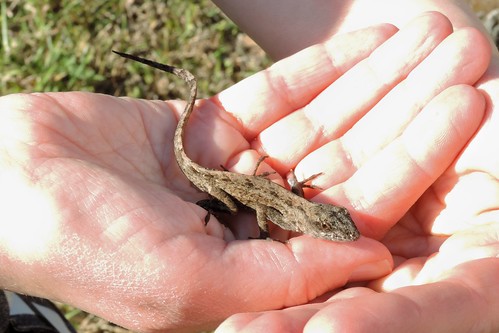
We gorged ourselves on a buffet, then headed down into ENP for a few hours of road cruising. It was much cooler than expected. After daytime temps in the mid 70s, it dropped pretty rapidly after dark. (The weather-person on the news the next day said it was "well below average".) Our hopes of seeing a snake that night were quickly being dashed. We got out to walk around at a few spots. This spider kept us entertained.
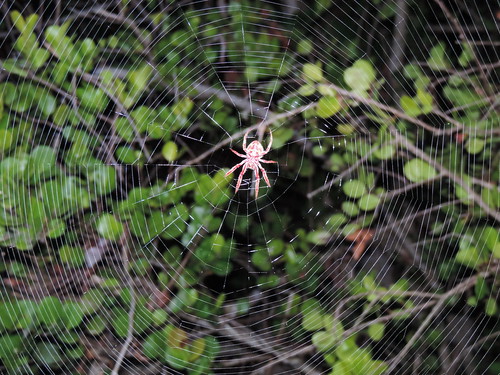
While driving the roads back to get to bed and ready for an early morning wake-up, we finally saw our first indigenous species... the lovely Pig Frog.
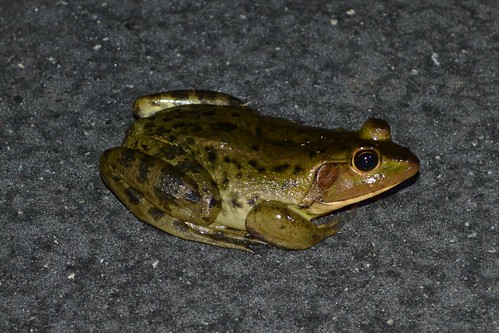
And another...
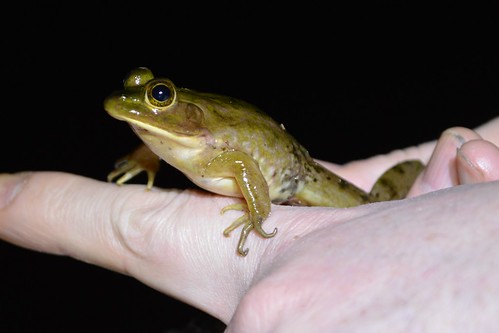
Back at our hotel, we looked around the grounds a bit before hitting the hay. We saw one last reptile, what I believe to be a Hemidactylus turcicus, a Mediterranean House Gecko.
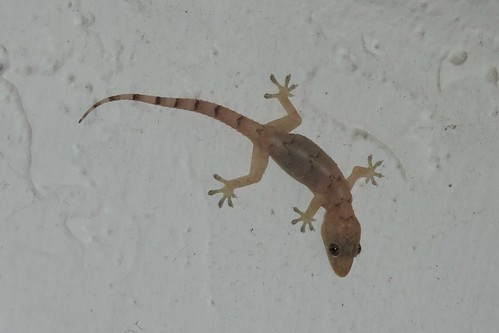
So, seven species and six of them are not native. Welcome to Southern Florida. But these are all magnificent creatures, no matter how you slice it, and it's a privilege to see them. What would the next 3 days bring us?
hell yeah!
ReplyDeleteI still haven't seen a damn blind snake!
ReplyDelete